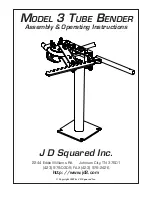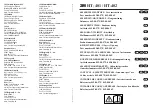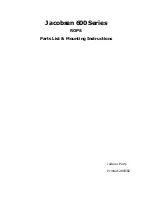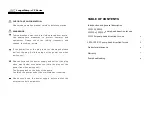
Apollo Twin Hardware Manual
Chapter 1: Introduction
10
Operational Overview
About Realtime UAD Processing
Apollo Twin has the ability to run UAD Powered Plug-Ins in realtime. Apollo Twin’s groundbreak-
ing DSP + FPGA technology enable UAD plug-ins to run with latencies in the sub-2ms range,
and multiple plug-ins can be stacked in series without additional latency.
Realtime UAD Processing facilitates the ultimate sonic experience while monitoring and/or
tracking.
Note: Apollo Twin, like other UAD-2 devices, can only load UAD Powered Plug-Ins, which
are specifically designed to run on UAD-2 DSP accelerators. Native (host-based) plug-ins
cannot run on the UAD-2 DSP.
Console
The Console application is used to control Apollo Twin mixing and monitoring with Realtime
UAD Processing, access the audio interface I/O settings, and more. Console’s analog-style work-
flow is designed to provide quick access to the most commonly needed features in a familiar,
easy-to-use mixer interface.
Realtime UAD Processing is a special function that is available only within Console. All of
Apollo Twin’s analog and digital inputs can perform Realtime UAD processing simultaneously,
and Console inputs with (or without) Realtime UAD Processing can be routed into the DAW for
recording.
Console also controls Apollo Twin’s digital mixer so you can monitor Apollo Twin’s inputs (with or
without Realtime UAD Processing) without using any other audio software such as a DAW.
Console is integral to unleashing the power of Apollo Twin. For complete details about how to
use Console and Realtime UAD Processing, refer to the Apollo Software Manual (see
“About
Apollo Twin Documentation” on page XX
).
UAD Powered Plug-Ins in the DAW
Apollo Twin and UAD Powered Plug-Ins can also be used within a DAW without the use of
Console. UAD plug-ins loaded within the DAW operate like other (non-UAD) plug-ins, except
the processing occurs on the Apollo Twin DSP instead of the host computer’s processor. In this
scenario, UAD plug-ins are subject to the latencies incurred by I/O buffering.
For complete details about using UAD Powered Plug-Ins in the DAW, refer to the UAD System
Manual (see
“About Apollo Twin Documentation” on page XX
).











































